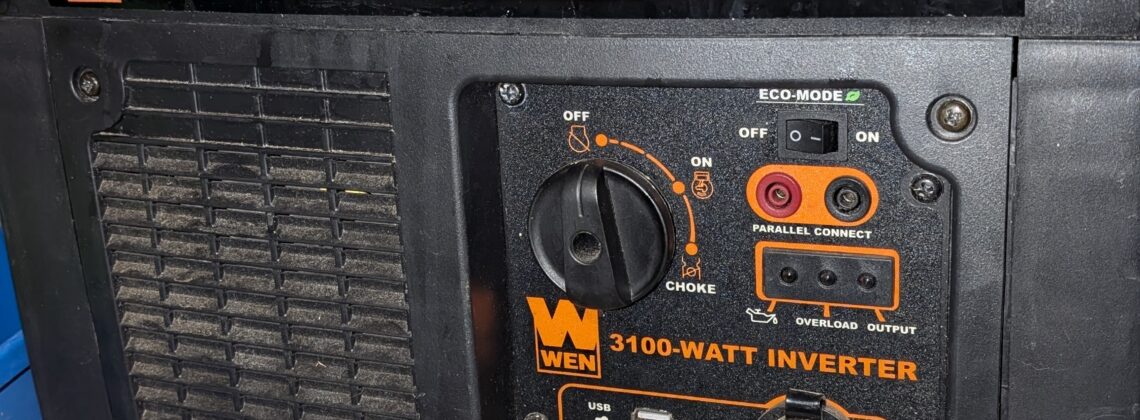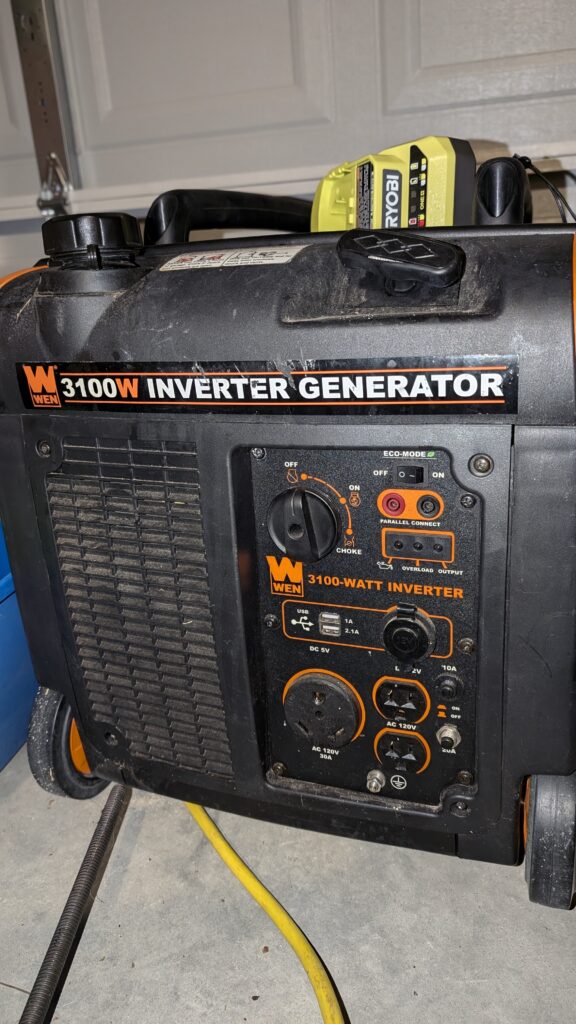
 For those who think they need to buy the largest generator on the market to survive a 7-day power outage, I have some insight for you.
For those who think they need to buy the largest generator on the market to survive a 7-day power outage, I have some insight for you.
Our inverter generator is almost 10 years old, and until Hurricane Helene, we’d never had to use it for an extended outage. I make sure to run it for about 30 minutes with a load (plugging in something heavy) once a month, and I change the oil once a year, even if it hasn’t been used. I run regular gas but always add StaBil with ethanol corrector in both the generator and my gas cans.
We started up the generator around 4:45 AM, 20 minutes after the power went out on September 27th, 2024. It ran nearly 24 hours a day until the power was restored at around noon on October 3rd, 2024.
During that time, it powered portable fan batteries, electric fans, a coffee pot, two refrigerators with freezers, a deep freezer, a small electric griddle, a toaster, an electric kettle, a 65-inch TV and sound system, an internet router, a desktop computer with a monitor, up to three lamps, and charged phones and laptops.
The only things we didn’t run were the water heater, stove/oven, and HVAC. And yes, extension cords were everywhere – pretty inconvenient.
Overall, I estimate the generator ran at about 50% capacity, and it never once shut off. We used roughly 15 gallons of gas over the entire period.
We cooked frequently on our Blackstone gas griddle and barely used 1 pound of propane. We also used a camp stove and didn’t even finish one propane cylinder.
The takeaway? Our generator is a 10-year-old Wen 3100 watt inverter model, purchased after the 2014 ice storm. We’re planning to upgrade to a larger one, but we’re still deciding how big to go and whether to install equipment that would allow us to power the house (minus the HVAC) through a single connection.
A whole-house generator (like Kohler, Generac, or Briggs & Stratton) isn’t an option for us since we don’t have access to natural gas, and burying a fuel tank doesn’t appeal to me.
The bottom line: You don’t need a massive generator. A 9,000-watt model would be more than enough for most homes. If you want to avoid extension cords, consider installing an interlock and plug for your home. Otherwise, using extension cords is fine as long as you’re safe about it.